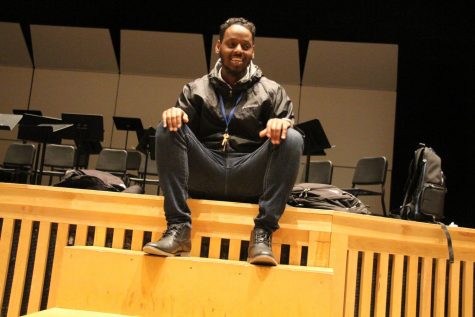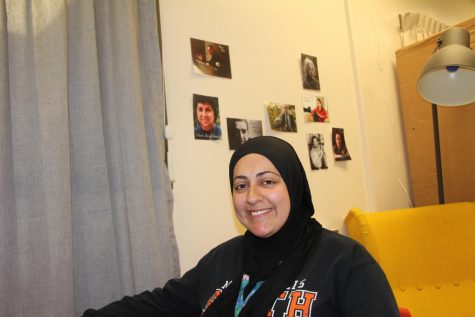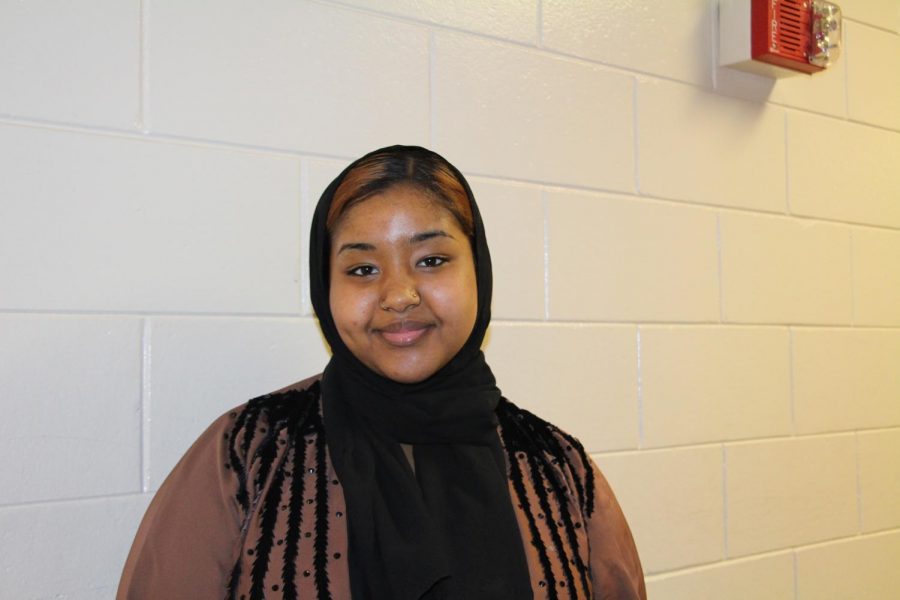Sophomore Jelane Abebe said the hardest part of fasting is focusing in school. She said, “Remembering why you’re fasting and who you’re fasting for takes away all the hunger.” She feels “mentally and emotionally better” during Ramadan.
South Muslims share their Ramadan experiences
May 25, 2019
Ramadan is a full month of fasting…stuffing your face with sambusa…falling into an everlasting food coma and relaxing…dashing to Taraweeh soon after to hear the calling of the Imam saying “Allahu Akbar.” This is Ramadan, a beautiful month where Muslims ask for forgiveness and to pray for – not dwell on – those who weren’t blessed enough to see another Ramadan.
Every Muslim is required to complete five pillars in Islam, and fasting during Ramadan is one of the pillars. Think of each ‘pillar’ as a base. Go through all five bases to hit a home run! The first pillar is Shahadah, which is the understanding that there is no God but Allah, and Muhammad is his messenger. The second is Salah, which means “to pray.” Praying the five daily prayers is extremely crucial in Islam.
The next pillar is Zakat, acknowledging the poor and giving money to charity whenever you can. Fourth is Sawm, which translates to fasting. Fasting a full thirty days from dawn to dusk when Ramadan comes around is extremely important. And lastly, Hajj, the pilgrimage made to Kaaba, the “House of God” in Mecca. Every Muslim is expected to go to Hajj at least once in their lifetime.

Here at South High, there are over four hundred Muslim students fasting everyday from Fajt (dawn) to Magrib (sunset). Fasting means abstaining all food and water for a certain time. Here in the U.S., Muslims are fasting for up to 17 hours. I asked South students and staff what Ramadan means to them and how they spend their Ramadan.
Freshman Abdoulhakeem Dimitris shared the hardest part of Ramadan. “The first day…is always the hardest. Your body isn’t used to [fasting]. It’s hard to do anything that day. Ramadan challenges you.”
Dimitris continued, “Later on, if you believe it’s easy to do something, then you can do it. Fasting is easy! Ramadan gives you Iman [faith]. I started fasting when I was seven. I’ve been so used to it, fasting for me is so normal. It all depends on you and your actions. If you pray every day and have the intentions to celebrate this holy month, you can do it.”
Sophomore Jalane Abebe explained how she distracts herself from the urge to break her fast. “If I do get the urge to break my fast, I’ll just distract myself by binge watching videos online or taking a walk to get your mind off it all,” she said.
“Ramadan is about connecting and reconnecting with your community and is the month of forgiveness. It’s the greatest time of the year to better yourself and build goals to become a greater Muslim. Family is so important during Ramadan. Ramadan has been treating me good Alhamdulillah [praise be to God]. I feel mentally and emotionally better.”
Abebe continued, “[Fasting] is not hard at all to align in my normal life. The hardest thing I’d say is focusing in school, but know everything will eventually pay off in the end. Remembering why you’re fasting and who you’re fasting for takes away all the hunger. It is a struggle, yes, but like I said, it’ll all pay off in the end.”
Not every Muslim is obligated to fast during Ramadan. If you’re sick, taking medicine, breastfeeding, or pregnant, fasting isn’t required. South High social worker Farah Abuqalbeen, who is breastfeeding, spoke of how her Ramadan journey this year has been going. “The reason I’m not fasting is because I need to stay hydrated for two. Myself and my child,” she said.“My body needs nutrients and providing that for not just yourself but for your baby as well. As a mom, your body needs to take in so much more, especially because it’s not just you you’re taking care of now,” Abduqalbeen said.
“I’ve experienced Ramadan before and after kids. Ramadan before kids is very different. I love the feeling of staying up at night and heading to the mosque. Ramadan isn’t only about the spiritual aspect, but also the social aspect of it. That’s when you see people and connect the most. From Iftar parties to going to Taraweeh [late night prayers] together. I miss that feeling. I’m still trying to find my balance and find the spirit of Ramadan.”
Abuqalbeen recognizes how hard it can be for South students fasting during Ramadan. “I think what’s harder than not eating and drinking is not sleeping. Days are long and at night you eat so late and you go to Taraweeh,” she said. “I’m so proud of all our students here at South.”
Abduqalbeen encouages students who begin to feel overwhelmed during Ramadan to reach out to their social workers and counselors. “That’s what we’re essentially here for. We’re here to support all our students. And this is such an important month for all our Muslim students. Whatever we can do to make it a little bit easier, we’d be happy to help. Although I’m not celebrating Ramadan, I have small goals to better myself this Ramadan. Being aware of working in a high stress environment, assuming best intentions of everyone around me is something I’m working more on.”
Gear Up coordinator Ali Osman also shared his Ramadan goals and asked South staff to be understanding of students participating in Ramadan. “When you’re 15 or 16 and fasting, understanding the purpose of Ramadan could be difficult. As an adult, I’m just now understanding a little more each year when Ramadan comes around that Ramadan is all about remembering the poor and becoming the greater you,” said Osman. “My favorite part of Ramadan is definitely bettering myself. It takes 30 days to break a habit and if you do something so much, you’ll fall into that new habit.”
“As a staff member at a high school, I understand fasting may be difficult to students especially when you’re coming to school and seeing others who aren’t fasting and seeing snacks and food all over, it’s easy to fall off that bandwagon.” Osman continued.
“Depending on where you live around the world determines how long you and the folks in your country fast. Here in the U.S., we’re fasting for 17 hours almost. I encourage all teachers to give accommodations to students fasting,” he said.

South social worker Farah Abuqalbeen is not fasting for Ramadan this year because she is breastfeeding. “Ramadan isn’t only about the spiritual aspect but also the social aspect of it. That’s when you see people and connect the most. From Iftar parties to going to Taraweeh together. I miss that feeling. I’m still trying to find my balance and find the spirit of Ramadan,” said Farrah.
South has provided some support for students observing Ramadan by extending prayer space beyond the auditorium and making space available during lunch, so that fasting students do not have to be around food.
During this blissful month, the community around us is very supportive and highly encourages the youth to not give up and to utilize Ramadan for all of the positive things it holds. As the days go by Muslims find the month to go by easier, it allows time to grow, break habits and increase your iman (faith). Ramadan will end during the last week of school, with the celebration of Eid-al-Fitr, one of the most important holidays in the Muslim calendar.
